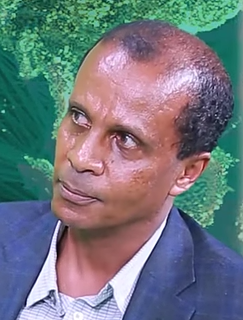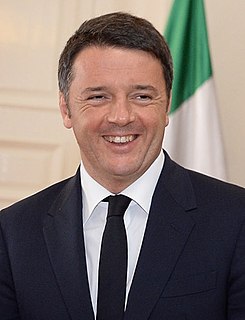A Quote by Annalee Newitz
It's only been in the past two generations that we truly understood the impact our civilization has had on the natural world. To our credit as a species, we have turned this obscure scientific fact about carbon cycles into one of the most important political issues of the 21st century.
Related Quotes
These strengths, and our civilization in general, have reached an apogee with the end of the apocalyptic threats of the Cold War and the end - or at least waning - of less successful, and ultimately less "just," political and economic systems. At the turn of the 21st century we appear to be entering our greatest century, a golden age. The challenge that we face is similar to that of the Classic Maya civilization: we have set in motion a "runaway train" of success.
The transition to a low-carbon economy will be one of the defining issues of the 21st century. This plan sets out a route-map for the UK's transition from here to 2020...every business, every community will need to be involved. Together we can create a more secure, more prosperous low carbon Britain and a world which is sustainable for future generations.
The future of life on earth depends on our ability to take action. Many individuals are doing what they can, but real success can only come if there's a change in our societies and our economics and in our politics. I've been lucky in my lifetime to see some of the greatest spectacles that the natural world has to offer. Surely we have a responsibility to leave for future generations a planet that is healthy, inhabitable by all species
I find Chinese debates about their political system domestically, but also about China's claims in the international system, to be among the most original and surprising and exciting of our time. The starting point is a system that none of us had anticipated, which I call Leninist capitalism, but also obviously because it is the most important emerging power. The question of China's relations with the United States in particular, and the rest of the world in general, is the question of war and peace in the 21st century.
Thanks to the leadership of Vice President Gore, we have a government for the Information Age, once again a government that is a progressive instrument of the common good, rooted in our oldest values of opportunity, responsibility and community, devoted to fiscal responsibility, determined to give our people the tools they need to make the most of their own lives in the 21st century, a 21st century government for 21st century America.
Our early 21st century civilization is in trouble. We need not go beyond the world food economy to see this. Over the last few decades we have created a food production bubble-one based on environmental trends that cannot be sustained, including overpumping aquifers, overplowing land, and overloading the atmosphere with carbon dioxide.
During my span of life science has become a matter of public concern and the l'art pour l'art standpoint of my youth is now obsolete. Science has become an integral and most important part of our civilization, and scientific work means contributing to its development. Science in our technical age has social, economic, and political functions, and however remote one's own work is from technical application it is a link in the chain of actions and decisions which determine the fate of the human race. I realized this aspect of science in its full impact only after Hiroshima.
Avatar is the most high tech film in terms of its execution, dealing with essentially a very low tech subject; which is our relationship with nature...and in fact the irony is that the film is about our relationship with nature and how our technological civilization has taken us several removes away from a truly natural existence and the consequences of that to us.
































